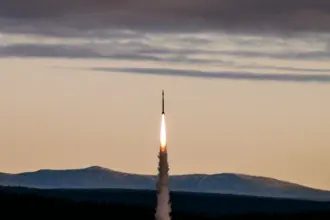Quantum computers, long seen as the domain of physics laboratories, are beginning to find practical application in business. With the increasing availability of hardware via the cloud, there is a demand for a new type of specialist – a hybrid of data scientist and physicist who can translate business problems into the language of qubits.
For decades, quantum computers were a technological promise, a distant vision with computing power capable of cracking modern cryptography and simulating molecules with unimaginable precision. This vision is slowly becoming a reality, albeit in a more subdued and pragmatic form. The discussion in the IT industry is quietly shifting from ‘if’ to ‘how and when’ we can use these machines to solve real-world problems.
The fundamental change that is driving this transformation is accessibility. Technology giants are making their, for now imperfect and ‘noisy’ (NISQ – Noisy Intermediate-Scale Quantum), quantum processors available via cloud platforms. In parallel, software libraries such as Qiskit or Cirq are being developed that abstract away much of the complexity of quantum physics. They allow programmers and analysts to focus on the logic of the algorithm rather than directly manipulating the states of individual particles.
This opens the door for an evolution in the world of data analytics and artificial intelligence. And it creates a gap that needs to be filled by a new professional profile: the quantum data scientist (Quantum Data Scientist).
Who is a quantum data scientist?
This is not a theoretical physicist locked in an academic ivory tower. Nor is it a classic data scientist who merely swaps the `scikit-learn’ library for `qiskit-machine-learning’. The quantum data scientist is a bridge specialist who stands at the interface of three worlds:
1. a deep understanding of business problems in sectors such as finance, pharmaceuticals, logistics or energy.
2. proficiency in data modelling and classical artificial intelligence techniques.
3. a working knowledge of quantum architectures and the algorithms that can operate on them.
His key task is to identify problems that have the potential for ‘quantum supremacy’ – that is, where even early quantum computers can offer better, faster or more accurate results than the most powerful classical supercomputers. He or she must then be able to translate this problem into the language of quantum algorithms, integrate them with classical data flows and interpret the probabilistic results that cubits generate.
Where does the potential lie?
While a universal, fault-tolerant quantum computer is still a distant future, applications are already being experimented with in several key areas:
- Optimisation: Logistics problems (e.g. optimising routes for a fleet of vehicles), financial problems (e.g. optimising an investment portfolio) or manufacturing problems are challenges in which the number of possible combinations grows exponentially. Quantum algorithms, such as QAOA (Quantum Approximate Optimisation Algorithm), are designed to search this huge solution space more efficiently.
- Simulations: The chemical and pharmaceutical industries stand to gain the most in the near term. Simulating the behaviour of molecules to design new drugs or materials (e.g. more efficient batteries) is extremely difficult for classical computers. Since nature at its core is quantum, simulating it on a quantum computer is more natural and potentially much more efficient.
- Artificial intelligence: The area of quantum machine learning (Quantum Machine Learning) is also being explored. The idea here is to use quantum phenomena to improve predictive models, recommendation systems or inference engines, especially when working on complex, multidimensional data sets.
A collaborative ecosystem
Creating valuable quantum applications is not a one-man job. It is a team sport, requiring interdisciplinary collaboration. A quantum data scientist will work hand in hand with:
- Domain experts (chemists, engineers, financial analysts) who understand the physical or business ground on which they operate.
- Computer scientists and software engineers who can build robust, scalable data pipelines that integrate classical and quantum systems.
- Physicists and mathematicians to help develop new algorithms and understand the limitations of current hardware.
The dynamics are also fuelled by a global open source community that collectively develops algorithms, frameworks and platforms, creating an unprecedented pace of innovation.
We stand at the threshold of a new era in technology. Like the early days of the internet or the Big Data revolution, the quantum phase will create new roles and require new skills. Companies that start exploring this area today and invest in developing talent capable of quantum thinking will gain a strategic advantage. The race for the hardware is on, but the real battleground in the coming years may be the battle for the people who can use it. The quantum data scientist will be one of the key protagonists in this change.




